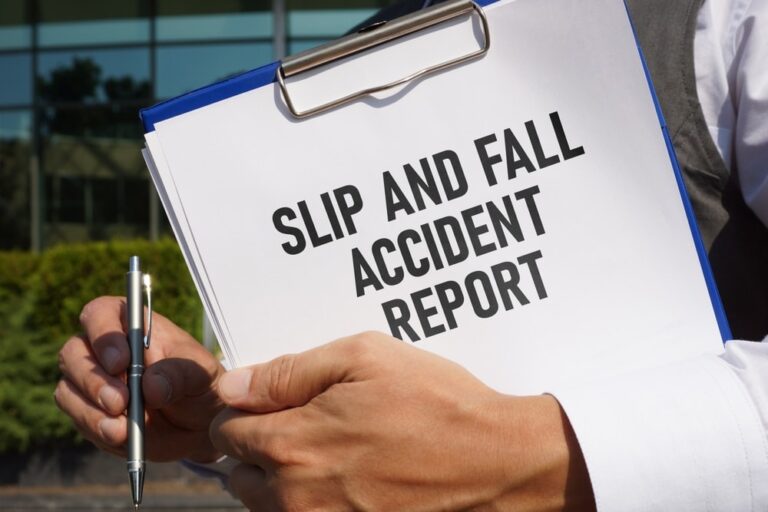Key Takeaways:
- Health insurance usually covers emergency care, rehabilitation, and medications after a car accident, but coverage limits and exclusions may apply.
- Policy terms, pre-existing conditions, and subrogation rights can affect how much your insurer pays and when you receive financial relief.
- In Wisconsin, medical bills must be paid upfront, even if another driver is at fault; their insurance only reimburses after settlement.
- MedPay and uninsured/underinsured motorist coverage can help cover out-of-pocket costs.
- Health insurance pays economic damages like medical bills, but non-economic damages require a personal injury claim.
Typically, health insurance covers medically necessary treatment for injuries resulting from car accidents. It may not, however, cover non-economic damages like pain and suffering. Of course, every case is different and comes with its own set of unique circumstances.
Car accidents can be devastating, both physically and mentally. Read on to learn more in depth about health insurance details and Wisconsin car accident laws.
What Your Health Insurance May Cover
Medical insurance typically covers a range of medically necessary treatments for injuries sustained in car accidents. This includes:
- Emergency Care: Emergency services like ambulance transportation, hospital stays, surgeries, and immediate medical interventions are generally covered. These treatments address life-threatening injuries or prevent further complications immediately following the accident.
- Rehabilitation: Recovery often involves ongoing therapy. That includes physical therapy to restore mobility or occupational therapy to regain essential skills. Rehabilitation coverage can vary significantly. Some policies limit the number of sessions you can have.
- Medications: This includes prescription drugs for pain, infection prevention, or long-term recovery. However, more expensive medications may need prior approval. They might also lead to higher out-of-pocket costs based on your policy.
You should review your health insurance plan. Plans may discuss limits or exclusions for accident-related injuries.
Important Factors to Consider
- Policy Terms: Every health insurance policy has unique terms, including deductibles, co-pays, and maximum coverage limits. Some policies might exclude certain treatments, such as experimental procedures or alternative therapies. Reviewing these terms ensures you are prepared for potential gaps in coverage.
- Pre-existing Conditions: If an accident makes a pre-existing condition worse, your insurer will check for coverage. Sometimes, coverage may be reduced or denied based on the details of your policy.
- Subrogation Rights: Many health insurance policies include subrogation clauses. This means your insurer may recover the costs of your medical treatment from the at-fault driver’s insurance. While this can reduce what you ultimately owe, it could also delay financial resolution until the settlement.
- Understanding these factors helps you make informed decisions and ensures smoother navigation of the claims process after an accident.
financially. Understanding how your insurance coverage works after an accident is crucial, especially in Wisconsin.
Read on for information regarding health insurance claims and Wisconsin car accident laws.
What If the Accident Isn’t Your Fault?
When it comes to auto accidents, fault can be a complex matter. Initially, individuals are responsible for covering their medical bills, regardless of who caused the accident. Health insurance often helps pay these costs, but deductibles and co-pays remain the patient’s responsibility.
Additionally, Medical Payments Coverage (MedPay) through auto insurance can assist with out-of-pocket expenses. There is also uninsured/underinsured motorist coverage, which is required by Wisconsin law.
If another driver is at fault, their insurance will typically cover expenses, but only after parties reach a settlement. This process can take time, leaving the injured party to manage the bills in the meantime. It is important to stay on top of payments to avoid collections, even if a settlement is expected later.
Additional Considerations for Managing Medical Expenses
Navigating the financial aftermath of a car accident can be daunting, but taking proactive steps can help reduce stress.
Start by keeping detailed records of all medical appointments, bills, and treatments related to the accident. These records are critical when negotiating with insurance companies or pursuing compensation from the at-fault driver.
For immediate financial relief, explore payment plans or negotiate directly with healthcare providers to avoid collection issues. Optional Medical Payments Coverage (MedPay) through your insurance can also provide a quick source of funding. That includes expenses not fully covered by health insurance, such as deductibles and co-pays.
Wisconsin’s subrogation laws also play a role. If your health insurer covers bills upfront, they may seek reimbursement from the at-fault party’s insurer. Consulting a personal injury attorney ensures you navigate this process effectively, protecting your rights and maximizing compensation.
Economic vs. Non-Economic Damages After a Car Accident
When dealing with car accident injuries, it’s important to understand the difference between economic and non-economic damages. Economic damages include measurable financial losses like medical bills and lost wages. These are typically covered by health insurance or auto insurance, though deductibles and co-pays may still apply.
Non-economic damages, however, go beyond financial costs. They make up for the personal effects of the accident, like pain, suffering, and emotional distress. They also consider a lower quality of life. Health insurance covers medical costs, but a personal injury claim helps victims get paid for their overall struggles.
Final Thoughts on Health Insurance and Car Accident Injuries
Health insurance plays a vital role in covering the immediate and ongoing medical costs associated with car accident injuries, from emergency care to rehabilitation and medications. However, navigating the complexities of coverage, including deductibles, policy exclusions, and subrogation rights, can be challenging.
Health insurance covers economic damages, like medical bills. However, it may not cover non-economic damages, such as pain and suffering.
To receive full compensation for your financial and personal losses, there are important steps you should take. Consult a car accident lawyer to learn more about your options.
 Calls Answered 24/7
Calls Answered 24/7



